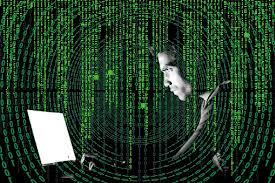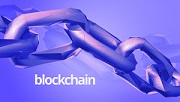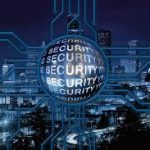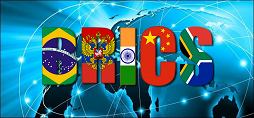[Editor’s Note: Mad Scientist Laboratory is pleased to present a post by Mad Scientist and guest blogger Lt Col Jennifer “JJ” Snow, addressing the emergence of a post-internet world.]
“The Internet of the 1990s was about choosing your own adventure. The Internet of right now, over the last 10 years, is about somebody else choosing your adventure for you.” – Cindy Cohn, Executive Director of the Electronic Frontier Foundation
 The internet was designed in its earliest iteration to provide a new form of communication, a way for people to connect, to share information in real-time, to provide a positive tool for collaboration and learning. Looking back at those early ideas, many of the founding fathers of the internet express disappointment in what it has become: a place where privacy and people are abused, information is wielded like a weapon, nations and corporations alike
The internet was designed in its earliest iteration to provide a new form of communication, a way for people to connect, to share information in real-time, to provide a positive tool for collaboration and learning. Looking back at those early ideas, many of the founding fathers of the internet express disappointment in what it has become: a place where privacy and people are abused, information is wielded like a weapon, nations and corporations alike  battle each other and other nefarious actors in the digital shadows, and fake news dominates the taglines in hopes of grabbing the most dollars per click. In light of what technologists, ethical hackers, and the public view as a potentially irrecoverable situation, many are suggesting starting over and abandoning the internet as we know it in favor of alternative internet options or “Alternet.” [1]
battle each other and other nefarious actors in the digital shadows, and fake news dominates the taglines in hopes of grabbing the most dollars per click. In light of what technologists, ethical hackers, and the public view as a potentially irrecoverable situation, many are suggesting starting over and abandoning the internet as we know it in favor of alternative internet options or “Alternet.” [1]
 These initiatives are nascent but are increasingly gaining traction as they offer users the option to manage their own identity and information online; choose what they do and don’t want to share digitally; provide transparency as a currency, meaning users can view rules, policies, and protocols openly at any time and see when changes are made real-time; and allow users to be their own data authority. While progress in this space will be slow but steady over the next two years, expect that “Alternets” will become a publicly recognized substitute to the big internet companies in five years and a commonplace feature of the web in 10 years as users become more disenchanted, distrustful, and decide they want greater control, attribution, or anonymity as needed, and desire an internet that meets their norms, cultural, and community preferences.
These initiatives are nascent but are increasingly gaining traction as they offer users the option to manage their own identity and information online; choose what they do and don’t want to share digitally; provide transparency as a currency, meaning users can view rules, policies, and protocols openly at any time and see when changes are made real-time; and allow users to be their own data authority. While progress in this space will be slow but steady over the next two years, expect that “Alternets” will become a publicly recognized substitute to the big internet companies in five years and a commonplace feature of the web in 10 years as users become more disenchanted, distrustful, and decide they want greater control, attribution, or anonymity as needed, and desire an internet that meets their norms, cultural, and community preferences.
There are several interesting challenges that come with the fracturing of the internet in this manner.
 First, Alternets will be more insular, require individual verification to join, and users will need to buy special equipment like a community specific encrypted router or use a particular variant of the blockchain to access the web.
First, Alternets will be more insular, require individual verification to join, and users will need to buy special equipment like a community specific encrypted router or use a particular variant of the blockchain to access the web.
 Secondly, Alternets may serve to fracture the internet itself in interesting ways that could impact how data and users are able to digitally traverse the globe.
Secondly, Alternets may serve to fracture the internet itself in interesting ways that could impact how data and users are able to digitally traverse the globe.
 Third, Alternets will provide both the attribution many desire in social media to stop cyber bullying, scammers, and fake news, and the anonymity features that allow both dissident and terror groups to operate safely in virtual spaces. As with all technologies, there will always be opportunities for both positive and malicious use.
Third, Alternets will provide both the attribution many desire in social media to stop cyber bullying, scammers, and fake news, and the anonymity features that allow both dissident and terror groups to operate safely in virtual spaces. As with all technologies, there will always be opportunities for both positive and malicious use.
 Fourth, the development and spread of Alternets may serve to further polarize various interests, organizations, and nations as like-minded communities will group together rather than strive to engage in constructive discourse, further reducing the opportunity for bridging entities to be effective negotiators.
Fourth, the development and spread of Alternets may serve to further polarize various interests, organizations, and nations as like-minded communities will group together rather than strive to engage in constructive discourse, further reducing the opportunity for bridging entities to be effective negotiators.
 Fifth, such online fracturing may also manifest physically in real life leading to conflict, both digital and physical, and may enhance the weaponization of cyber in new ways to include citizen cyber militia actively operating in defense of their communities and/or their nation or offensive attacks by nations operating from their own “Alternet” separate from the existing DNS system and not regulated and not easily targetable by competitor nations, thus limiting their ability to counterstrike and creating an overmatch situation. [2]
Fifth, such online fracturing may also manifest physically in real life leading to conflict, both digital and physical, and may enhance the weaponization of cyber in new ways to include citizen cyber militia actively operating in defense of their communities and/or their nation or offensive attacks by nations operating from their own “Alternet” separate from the existing DNS system and not regulated and not easily targetable by competitor nations, thus limiting their ability to counterstrike and creating an overmatch situation. [2]
 Current examples of “Alternets” that exist today include the private citizen efforts of the Metacurrency Project called Holo; the Russian independent internet for the BRICS block of nations; the PRC alternative which has also been installed in Tanzania, Nigeria, and Vietnam; BitDust, a decentralized, encrypted, anonymous storage and communication solution; Mastodon a decentralized, personally hosted, microblogging solution used in the Middle East, Africa, and Asia; and Hyperboria which was born out of the DarkNet and is an encrypted, distributed, peer-to-peer IPv6 network with Distributed Hash Table (DHT)-based source routing.
Current examples of “Alternets” that exist today include the private citizen efforts of the Metacurrency Project called Holo; the Russian independent internet for the BRICS block of nations; the PRC alternative which has also been installed in Tanzania, Nigeria, and Vietnam; BitDust, a decentralized, encrypted, anonymous storage and communication solution; Mastodon a decentralized, personally hosted, microblogging solution used in the Middle East, Africa, and Asia; and Hyperboria which was born out of the DarkNet and is an encrypted, distributed, peer-to-peer IPv6 network with Distributed Hash Table (DHT)-based source routing.
A full listing of “Alternet” projects and tools can be found in the footnotes. [3]
To learn more about the security ramifications associated with the rise of Alternets, read the following blog posts:
– The Future of the Cyber Domain
– Virtual Nations: An Emerging Supranational Cyber Trend, by Marie Murphy
JJ Snow is an Air Force Lt Colonel assigned as the U.S. Special Operations Command Innovation Officer and the J5 Donovan Group Future Plans and Strategy Deputy Director. In her current role, JJ serves as the government representative for technology outreach and engagement on behalf of the command and 756 interagency action officers spanning 40 different government agencies.
She is responsible for maintaining a network of non-traditional experts across industry, academia and ethical hackers/technologists to provide government with critical access, expertise and capacity across a broad spectrum of technologies to rapidly identify best of breed while also proactively responding to potential threat aspects of concern to Special Operations and national security. She supports senior government leadership in process innovation, innovation planning in big government, and the development of smart technology policy and advises senior government representatives on emerging disruptive technologies.
She holds a MS Degree in Defense Analysis with distinction from the Naval Postgraduate School (NPS) and a MA from American Military University in Strategic Intelligence with honors.
[1] Saldana et al., “Alternative Networks: Toward Global Access to the Internet for All.” IEEE Communications Magazine, vol. 55, no. 9, pp. 187-193, 2017.
Lafrance, Adrienne; “The Promise of a New Internet.” The Atlantic (10 JUN 2014)
Finley, Klint; “The Pied Piper’s New Internet Isn’t Just Possible – It’s Almost Here.” Wired (1 JUN 2017)
[2] Eric Harris-Braun, Nicolas Luck, Arthur Brock; “Holochain: Scalable Agent-Centric Distributed Computing.” Holo (15 FEB 2018)
Degurin, Mack; “Russia’s Alternate Internet.” NY Magazine (13 JUL 2018)
Sacks, Sam; “Beijing Wants to Rewrite the Rules of the Internet.” The Atlantic (18 JUN 2018)
[3] The following links are included to provide the reader with the options of exploring some additional alternative internet options that exist and are in use today. A big thank you to Ross Jones in recognition for his detailed GitHub Wiki on this subject which is captured in the last link concerning alternative-internet solutions and tools: https://hyperboria.net/, https://github.com/redecentralize/alternative-internet




It’s already happening (alternet) with the assistance and support from Google who has been creating a censorable search engine for China so China can add additional control over their own people and the vast majority of Google employees have no problem with this with only hundreds complaining.
Yet thousands of Google employees complained and got that company to stop supporting the US military for AI integration into Project Maven that would actually save lives and not support dictatorial regime crackdowns.
IMHO, I’m 100% against alternets because they would only accelerate what we’re seeing on the internet now with “cocoons” of insulation towards specific groups and associated bias already underway.
Further, the “founding fathers” of the Internet are a bit naive since what they envisioned forgot to add in the basic human nature of things: take a tool and shape it toward what I want it to assist me with.
What has happened should not be a surprise; especially since failing to factor in decades, even centuries, of knowledge of how other countries and their way of life has been occurring means use of the Interweb as a tool for propaganda and information warfare (which the Soviets and Russians far exceed just about everyone on) should have been considered. Similarly, transnational extremists who have used the interweb and refined their processes while the West often laments but failed to understand the unifying aspect of a globally connected system enabling geographically decentralized folks form sharing Lessons Learned and for recruitment. After all, we do it, so why not others with bad intent?
IOW, seems like the “founding fathers” of the interweb were focused only on their vision and no one else’s no matter how much they thought their vision would open things up for current and future generations. That is a myopic view from a standpoint in time that fails to integrate nefarious actors and a bit “pie in the sky” approach. After all, Lee Iacocca provided $100 for everyone to test drive his cars and that resulted in a lot of money going out and the return was questionable; along with generating competitor ads of “we tried the car, but come try ours as its better; and thanks for the hundred dollars Mr. Iacocca” ads.